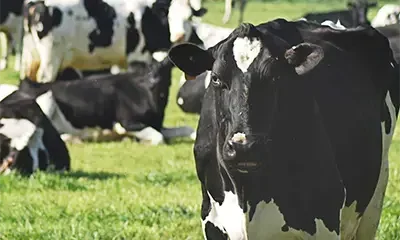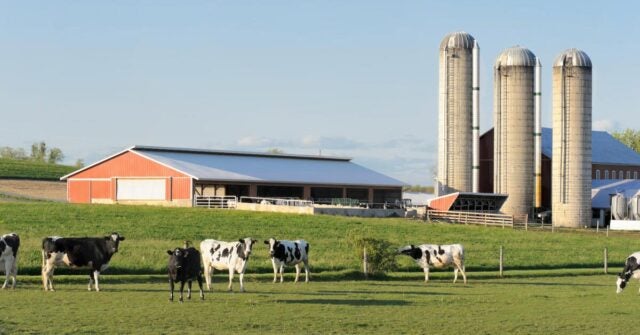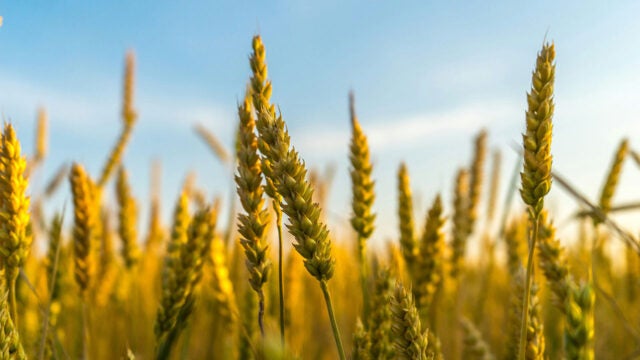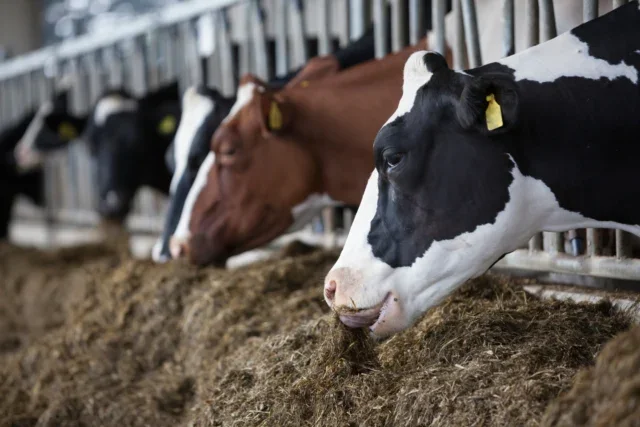- Resources
- Dairy methane stakeholder engagement: A guide for engaging stakeholders on dairy methane emissions mitigation
Resources
Dairy methane stakeholder engagement: A guide for engaging stakeholders on dairy methane emissions mitigation
Published: May 13, 2025 by EDF Staff
By driving down dairy methane emissions from their supply chains, food and dairy companies can increase resilience in their operations and supply chains, get ahead of existing and emerging regulations, accelerate progress toward meeting climate-related goals and demonstrate leadership across the livestock sector.
Collaboration across value chains and between sectors is essential to tackling dairy methane emissions head-on.
Scaling action and ambition
This fourth and final guide from the Dairy Methane Action Alliance (DMAA) outlines ways companies can engage both internal and external stakeholders to implement their Dairy Methane Action Plans (DMAPs) and advance dairy methane reductions.
It also includes case studies showcasing successful stakeholder engagement, existing initiatives that catalyze dairy methane work and key questions for companies to consider for strategy implementation.

Benefits, challenges, and modes of engagement by strategy
There are various mechanisms for food and dairy companies to build farmer and supplier capability and capacity, develop procurement strategies, implement a product innovation pipeline, spur innovation and advocate for policies to advance industry-wide progress.
Since there are many ways to operationalize this work across a company’s value chain, this guide provides context and translates DMAPs into action by highlighting opportunities to engage stakeholders through farmer and supplier engagement, innovation, and public policy advocacy. See an overview here.
Case study: Danone’s work on external innovation
Danone has a robust external innovation strategy that focuses on all three stakeholder engagement activities:
- Methane abatement research groups: Global Methane Hub (GMH) launched its Enteric Fermentation R&D Accelerator in 2023 at COP28. Danone was the first corporation that committed to funding the accelerator, demonstrating its leadership and commitment to prioritizing dairy methane reductions. The Accelerator has pledged to invest at least $200 million in developing and implementing practical solutions aimed at reducing methane emissions by 30% by 2030.
- Capital investments: Danone Ventures invests early in innovative companies that are bringing methane reduction solutions to market. In 2021, it invested in ZELP (Zero Emissions Livestock Project), a novel methane capture headpiece for cattle. In 2022 Danone Ventures led the Series A funding round of Symbrosia, a startup developing a seaweed-based feed additive, SeaGraze®.
- Pilot studies: Partnerships between universities and private companies developing methane solutions can help bring innovative solutions to market. In January of 2024, Danone partnered with Cornell University and Symbrosia to demonstrate the effectiveness of a new seaweed oil extract for methane reduction.
Next steps
Ready to advance progress toward a more sustainable dairy future? Reach out to learn more about how EDF can support your company in building and executing a robust and effective dairy methane strategy.
Reach out to our team to learn more here.
Dairy methane stakeholder engagement
A guide for engaging stakeholders on dairy methane emissions mitigation.
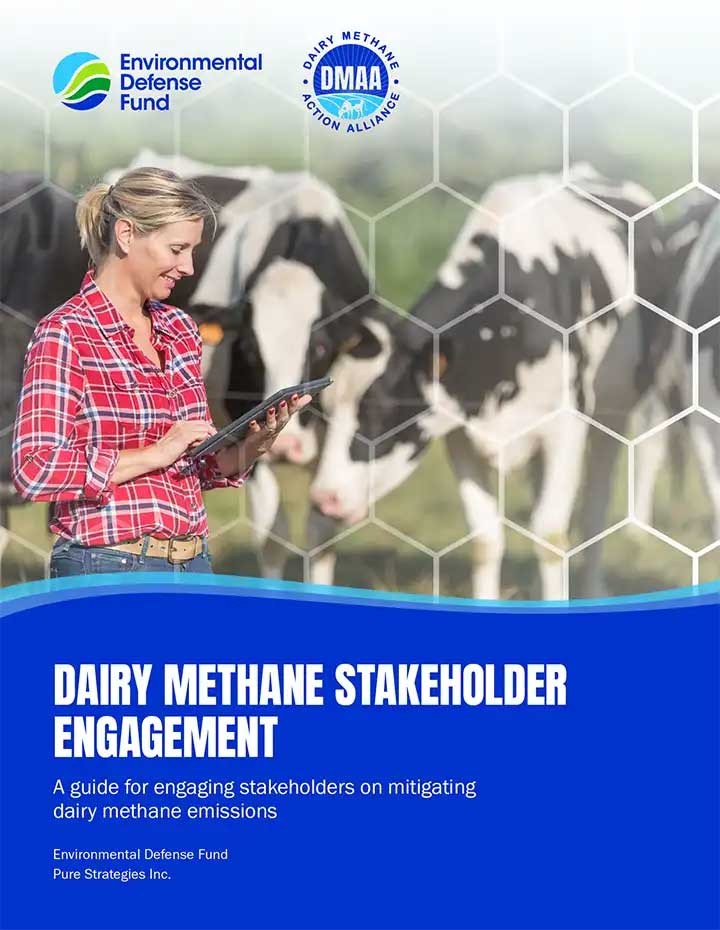
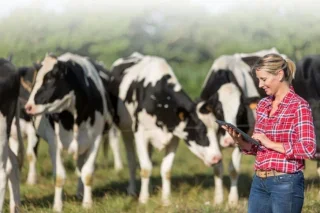
-
Dairy Methane Action AllianceLearn More
-
Dairy Methane AccountingView Guide
-
Dairy Methane DisclosureView Guide
-
Dairy Methane Action PlanView Guide
